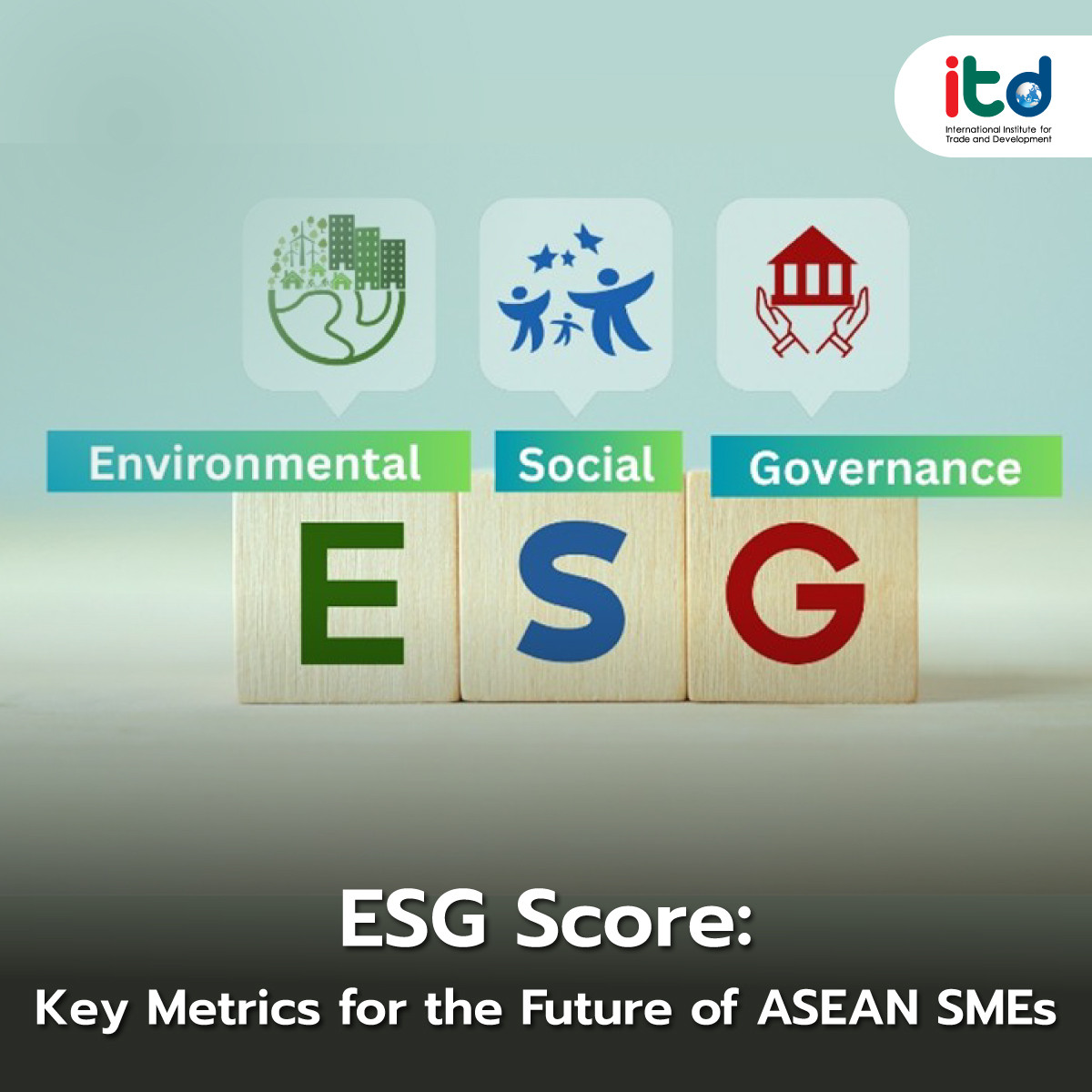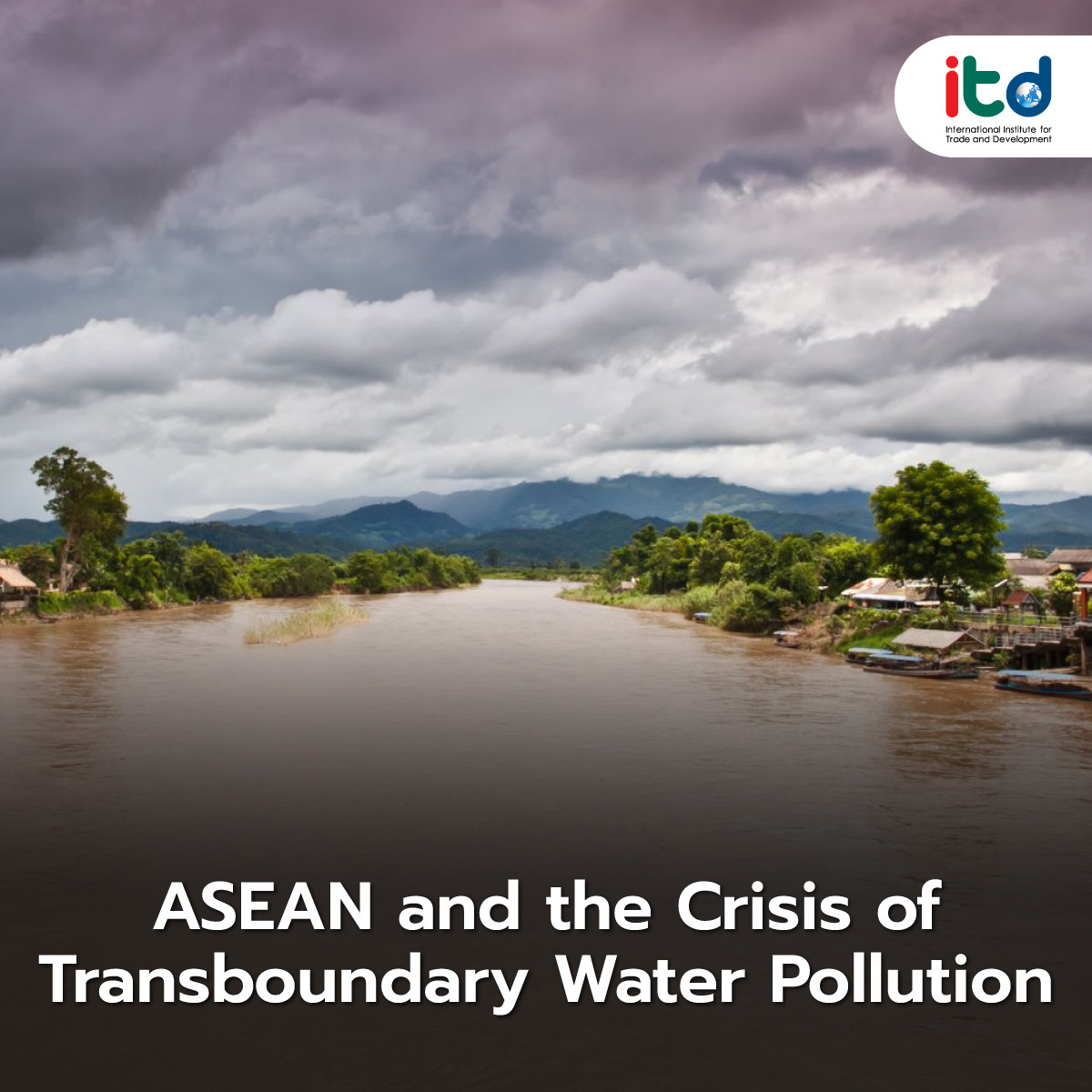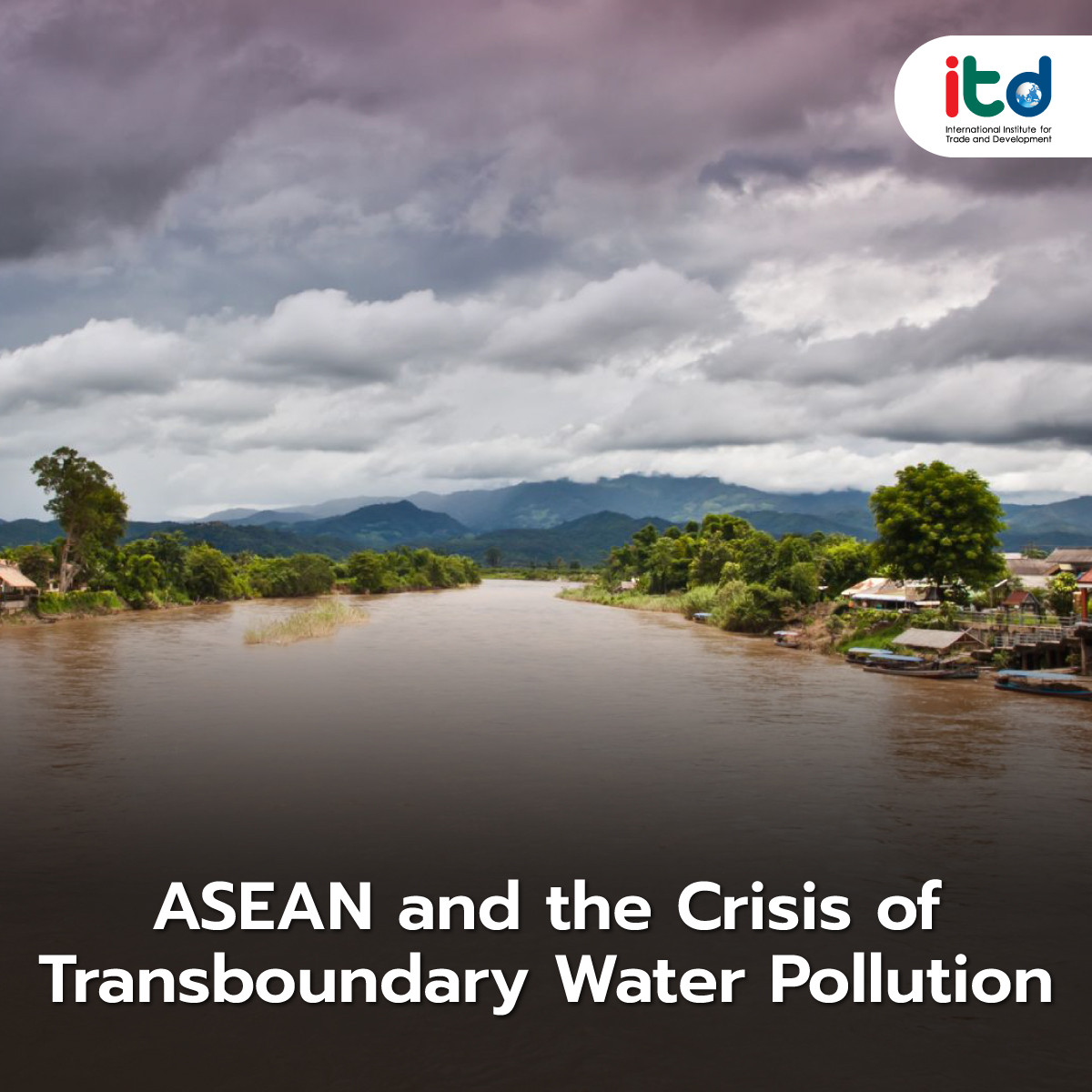About Documents
The business world is transitioning into an era where “sustainability” is a condition for survival, and ‘ESG Scoring’ or the evaluation of environmental, social, and governance performance, has become a crucial tool for measuring the value and risks of an organization. This includes Small and Medium-sized Enterprises (SMEs), which are the heart of the ASEAN economy.
Therefore, the readiness of ASEAN businesses, especially SMEs, is highly significant for the future economy which will be measured by ESG scores. Currently, ESG scores or ESG Scoring for SMEs in ASEAN are still in the early stages and are not standardized systems like those for large corporations. Evaluation often arises from specific drivers, such as requirements from trading partners in the supply chain or credit criteria from financial institutions. Furthermore, the level of ESG readiness among SMEs in ASEAN varies greatly, and I will highlight the cases of Thailand, Singapore, and Vietnam as follows:
For Thailand, large companies show clear progress, with the Stock Exchange of Thailand playing a leading role in promoting ESG through indices and reporting criteria, resulting in most listed companies disclosing information. Meanwhile, less than 20% of Thai SMEs have started to systematically implement or collect data, even though as many as 70-80% are aware of ESG. They still face key challenges, including increased costs, lack of knowledge, and the complexity of the criteria.
Singapore, as a financial hub, is highly prepared in terms of ESG, with over 80% of SMEs aware and 40-50% having started implementing it. Access to green finance is an accelerating factor, with ESG loans for SMEs in 2024 amounting to billions of Singapore dollars. Moreover, OCBC Bank and Enterprise Singapore have jointly launched the “OCBC SME Start-ESG Programme” to support SMEs with tools and guidance to improve their business sustainability performance, demonstrating Singapore’s readiness in the ecosystem to tangibly support SMEs in moving forward with ESG.
ESG Scoring in Vietnam is driven by the demand from institutional investors, credit institutions, and commercial businesses, but participation and disclosure of ESG scores in Vietnam remain voluntary due to several challenges. A PwC study found that 60% of SMEs in Vietnam still have no plans for ESG action because 61% lack knowledge, 48% lack funding, and 28% lack access to ESG data.
Challenges that need to be urgently overcome: ASEAN SMEs in general still face common obstacles, namely the lack of resources (both budget and personnel), as well as the complexity of the ESG framework. Accessing information for ESG reporting and disclosure is still difficult, and many SMEs still do not see clear short-term business benefits.
Opportunities Gambled on ESG Scores: Business opportunities for ASEAN having a good ESG score will be an advantage in retaining and expanding the customer base, especially in connecting with the supply chains of large corporations and international markets, which tend to prioritize ESG. Opportunities for accessing funding: Financial institutions globally and regionally are increasingly linking lending to ESG performance, and risk management helps SMEs better cope with new regulations and risks, especially environmental and social aspects, to build business resilience.
Next Steps in Building Advantages for SMEs: To prepare SMEs for a future measured by ESG scores, the government needs targeted support mechanisms, including: 1) A simple framework, such as developing ESG assessment tools and criteria suitable for the size and context of SMEs; 2) Knowledge enhancement, such as transferring practical knowledge and practices to reduce complexity; 3) Incentives, providing financial support or other incentive measures for SMEs that begin ESG implementation; and 4) Building connections, helping SMEs see the tangible business benefits of doing ESG.
ESG scores are what will define the future of SMEs in ASEAN. Although they are still in the early stages and vary greatly from country to country, with large companies in Thailand being quite ready, SMEs still need to adapt significantly amidst challenges related to resources and understanding. Systematic support from all sectors will be a crucial variable in helping Thai and ASEAN SMEs seize opportunities from the sustainability trend and become winners in the future business game driven by ESG.
Author:
Ms. Warunya Yossai
Senior Researcher
International Institute for Trade and Development (Public Organization)
www.itd.or.th
Publication: Bangkok BIZ Newspaper
Section: First Section/World Beat
Volume: 38 Issue: 12906
Date: Wednesday, May 21, 2025
Page: 8 (bottom-left)
Column: “Asean Insight”






